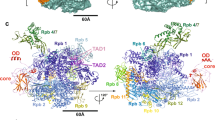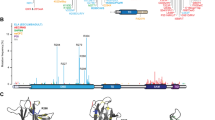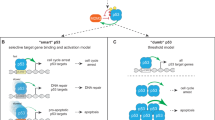Abstract
The p53 tumor suppressor protein can adopt both latent, non-DNA binding and active, DNA binding forms, and p53 activity is thought to be regulated in cells, at least in part, through a conformational shift which leads to sequence specific DNA binding. In vitro, this allosteric regulation of DNA binding by p53 has been shown to be mediated through the C-terminus of the protein. We show here that although deletion of the C-terminal 16 amino acids of p53 did not activate DNA binding, deletion of a further eight amino acids resulted in constitutive activation of DNA binding activity. Simultaneous mutation of the three lysine residues within these eight amino acids also resulted in constitutive DNA binding activity, although this was reduced when only two of these lysines were altered. The deletion or point mutants of p53 showing constitutive DNA binding activity did not display clear evidence of DNA binding site specificity, although some binding site preference was seen with the point mutants. Each of the constitutively active p53 mutants retained transcriptional activity and induced both cell cycle arrest and apoptosis in transiently transfected cells at rates comparable with the wild type protein.
This is a preview of subscription content, access via your institution
Access options
Subscribe to this journal
Receive 50 print issues and online access
$259.00 per year
only $5.18 per issue
Buy this article
- Purchase on SpringerLink
- Instant access to the full article PDF.
USD 39.95
Prices may be subject to local taxes which are calculated during checkout
Similar content being viewed by others
Author information
Authors and Affiliations
Rights and permissions
About this article
Cite this article
Marston, N., Ludwig, R. & Vousden, K. Activation of p53 DNA binding activity by point mutation. Oncogene 16, 3123–3131 (1998). https://doi.org/10.1038/sj.onc.1201856
Received:
Revised:
Accepted:
Published:
Issue date:
DOI: https://doi.org/10.1038/sj.onc.1201856
Keywords
This article is cited by
-
Binding of RNA to p53 regulates its oligomerization and DNA-binding activity
Oncogene (2004)
-
Several regions of p53 are involved in repression of RNA polymerase III transcription
Oncogene (2002)
-
The C-terminus of mutant p53 is necessary for its ability to interfere with growth arrest or apoptosis
Oncogene (2001)
-
Functional interaction between p53 and the interferon-inducible nucleoprotein IFI 16
Oncogene (2000)



